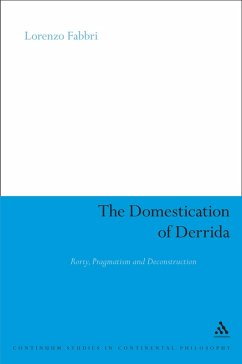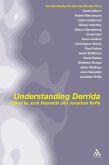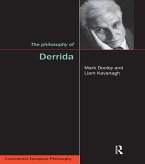In The Domestication of Derrida, Lorenzo Fabbri argues that Rorty's powerful reading protocol is motivated by the necessity to contain the risks of Derrida's critique of Western philosophy and politics.
Rorty claims that Derrida reduces philosophy to a production of private fantasies that do not have any political or epistemological relevance. Fabbri challenges such an aberrant appropriation by investigating the two key features of Rorty's privatization of deconstruction: the reduction of deconstructive writing to an example of merely autobiographical literature; and the idea that Derrida not only dismisses, but also mocks the desire to engage philosophy with political struggle.
What is ultimately questioned in The Domestication of Derrida is the legitimacy of labelling deconstruction as a post-modern withdrawal from politics and theory. By discussing Derrida's resistance against the very possibility of theoretical and political ascetism, Fabbri shows that there is much more politics and philosophy in deconstruction than Rorty is willing to admit.
Rorty claims that Derrida reduces philosophy to a production of private fantasies that do not have any political or epistemological relevance. Fabbri challenges such an aberrant appropriation by investigating the two key features of Rorty's privatization of deconstruction: the reduction of deconstructive writing to an example of merely autobiographical literature; and the idea that Derrida not only dismisses, but also mocks the desire to engage philosophy with political struggle.
What is ultimately questioned in The Domestication of Derrida is the legitimacy of labelling deconstruction as a post-modern withdrawal from politics and theory. By discussing Derrida's resistance against the very possibility of theoretical and political ascetism, Fabbri shows that there is much more politics and philosophy in deconstruction than Rorty is willing to admit.









